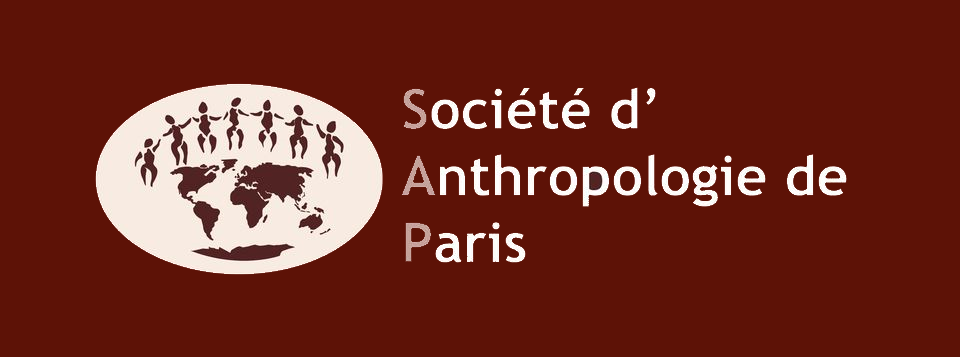2026 Meeting
January 28-30 2026 in Geneva University
Theme 1: Pathways of the past – Interdisciplinary approaches to ancient populations mobility
Invited speaker: to be announced
The mobility of human populations is a central theme in the study of past societies. It can take many forms: individual or collective, voluntary or forced, regular or occasional, short or long-distance, temporary or permanent, over the course of a single lifetime or multiple generations. To fully grasp these dynamics, it is often essential to establish a dialogue between different disciplines.
The aim of this session is to highlight the importance of interdisciplinary approaches in exploring the diverse forms of mobility in ancient societies.
This session will bring together research that relies on interdisciplinary approaches, combining and integrating data from multiple fields (e.g. bioanthropology, archaeology, palaeogenomics, isotope geochemistry) to refine, deepen and enrich our understanding of population dynamics in the past.
Key words: population dynamics, migration, paleogenomics, isotopes, cultural exchanges, networks, social interactions
Scientific committee: Camille de Becdelièvre, Jocelyne Desideri, Caroline Polet, Maïté Rivollat, Déborah Rosselet-Christ
Theme 2: Wounded bodies, violent societies – Multiple lenses on interpersonal violence in past societies
Invited speaker: to be announced
The study of interpersonal violence is a particularly insightful lens through which we can approach the sociocultural, economic and political dynamics of ancient societies. Individuals bearing evidence of trauma are frequently identified in archaeological contexts; but are they really signs of violence or simply accidental injuries? While it is not always easy to distinguish between the two, particularly in the most ancient periods, some contexts leave little room for doubt.
This session invites contributions based on interdisciplinary approaches, aiming to identify not only the tangible manifestations of interpersonal violence (e.g. trauma, weapons, iconography) within past human communities, but also the social constructions associated with such violence.
Key words: traumas, paleopathology, warfare, conflict, social violence
Scientific committee: Anouk Bystritzsky, Bérénice Chamel, Antony Colombo, Julie Debard, Christopher Knusel
Theme 3: Scientific breaking news
Scientific committee: Nathan Badoud, Ameline Bardo, Laura Maréchal, Audrey Poncet, Floriane Rémy
Programm:
Scientific Committee |
Organising Committee |
|
|
Former issues
All former issues from BMSAP are now Open Access
Published by Persée in 1859-1999
Published by OpenEdition Journals in 2000-2009
Published by Springer in 2010-2017
Published by Lavoisier in 2018-2020 :
Published by OpenEdition Journals since 2021
Benefits of SAP membership
Membership entitles you to a reduced registration fee for the annual SAP symposium. It enables each member to participate in the activities of the society, by taking part in votes to renew the Board of Directors and in votes at the Annual General Meeting (held each year at the time of the colloquium, at the end of January). Members are regularly informed of the society's activities and of anthropological news in France and abroad (contracts, symposia, etc.).
You can apply for membership using the form on this page. Once your application has been approved by the SAP Board of Directors, you will be able to pay your membership fee according to one of the methods described in the fees section.
SAP is a non-profit association under the French law of 1901. As such, you can make a donation to SAP, even if you are not a member.
Note that if you declare your income in France, you can deduct 66% of the amount of your annual membership fee or donation from your taxes, even if you are not taxable. So it really only costs you a third of what you pay into the Society.
2025 Meeting
January 29-31 2025 in Musée de l'Homme, Paris
Theme 1: Hierarchy and power in human and non-human primates
Invited speaker: Dr. Elise Huchard, Institut des Sciences de l'Evolution de Montpellier, FR
Hierarchies are the structured and codified expression of more or less visible inequalities within societies. They refer to the organisation of individuals subject to relationships of subordination. The power exercised by some, suffered or accepted by others, is the expression of various factors: intrinsic abilities (size, physical strength), individual identity (age, sex), social identity (lineage, clan), social status/role (technological, economic, political in the broadest sense).
Identifying hierarchical contexts in past societies, tracing their evolution and diversity, makes it possible to assess their consequences (funerary treatment, diet, health, activity) and to test their causes: socio-cultural, ecological and even biological determinants of power relationships, particularly between the sexes. From this perspective, data from non-human primate societies provide information on the evolutionary factors of sex-linked social traits, such as coercive behaviour (dominance of one sex over the other).
How can we recognise the attributes of power in human and non-human social structures, past and present? What are the practices, productions and aspirations of the 'dominant' and 'elite'? What factors contribute to the definition of their rank in society and to their perpetuation at the level of the social group, and even beyond? The papers proposed in this theme will focus, from the point of view of the archaeo-anthropologist or the primatologist, on the concepts of hierarchy and power, the relationships of domination between individuals, particularly between the sexes, their origins, the mechanisms by which they are expressed, and their consequences.
This theme is intended to be inclusive in terms of study models, approaches, methods and periods, in the sense that it concerns all primates, human and non-human, and all social organisations and structures, past or present.
Key words: Hierarchy, domination, social structures, social status, gender.
Scientific committee: Yann Ardagna, Christophe Darmangeat, Julie Duboscq, Cécile Garcia, Aline Thomas, Sébastien Villotte
Theme 2: Asia as a crossroads zone
Invited speaker: Dr. Janet Kelso, Max Planck Institute for Evolutionary Anthropology, Leipzig, DE
From the very first out-of-Africa events during the Lower Pleistocene to the “New Silk Roads”, the Asian continent has been at the crossroads between Africa, the Americas, Oceania, and Europe, from which most of the world's regions have been populated.
Over time, different human populations have occupied this area. Asia, the first region outside Africa to have been peopled by the Homo genus, also stands out for the diversity of human species that coexisted during the Middle and Upper Pleistocene: H. neanderthalensis, H. longi, H. luzonensis, H. floresiensis, Denisovans and H. sapiens. During the pre-, proto- and historic periods, a great variety of human populations and archaeological cultures have been present in Asia. In particular, two independent Neolithisation events took place there and spread across the entire continent. Later, the expansion of populations, particularly from the steppes to the east and south of Asia, brought these different chrono-cultural groups into contact with each other, and established a great population and cultural diversity that continues existing today. Finally, Asia is a region with a wide range of climates and geographical conditions, from glacial to tropical, from the world's highest mountains to vast deserts. Humans have been found in all of these regions, raising questions about biological and/or cultural adaptation mechanisms to these various environments.
The aim of this session is to bring together research pursued on Asia as a crossroads zone, at different temporal scales, from settlement to admixture between populations and on their genetic and non-genetic adaptations.
Key words: Asia, paleoanthropology, population genetics, Neolithic, adaptation, admixture.
Scientific committee: Julio Bendezu-Sarmento, Céline Bon, Bérénice Chamel, Florent Détroit, Nina Marchi, Olivia Munoz
Theme 3: Scientific breaking news
Programm: 
Scientific Committee |
Organising Committee |
|
|
Informations
Next annual meeting will be on January, 29-31 2025 in Musée de l’Homme, Paris
Auditorium Jean Rouch
17 Place du Trocadéro
75016 Paris
Access by métro: Lines 9 and 6
By bus: 22, 32, 63
Practical information
Catering possible on site at Café Lucy
Catering nearby: on Benjamin Franklin and Passy streets (Brasserie, Crêperie, fast food etc..)
For information only: registration fees to the 2024 annual meeting
| Until Novembre, 30th 2023 | Since December, 1st 2023 | |
| Half-fare (students, unemployed, retired) * | 15 € | 20 € |
| Full-fare (SAP Members) | 30 € | 50 € |
| Full-fare (non-Members) | 50 € | 75 € |
* Proof of student or unemployed status must be presented at the reception desk at the beginning of the annual meeting
For any question, you can reach us by email.



